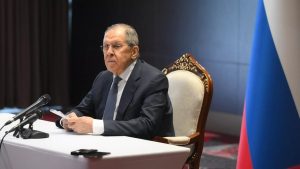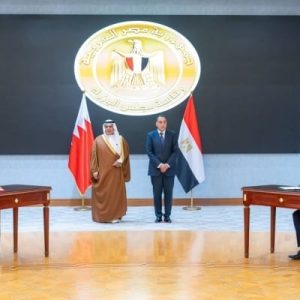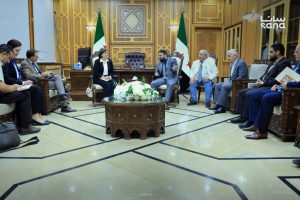Palestinians have no choice but to unite around a comprehensive national plan to confront the annexation scheme that Israel is attempting to implement over the majority of the West Bank, after years of the Palestinian Authority showing goodwill and a desire for peace.
While many countries are preparing to recognize the Palestinian state later this month, Israeli Finance Minister Bezalel Smotrich stated he will not allow the establishment of a Palestinian state, regardless of the challenges, affirming that the U.S. administration supports this stance.
According to Yedioth Ahronoth newspaper, Smotrich proposed extending sovereignty over 82% of the West Bank lands and entrusting the administration of the remaining area to the Palestinian Authority.
However, this talk about Israel annexing the West Bank is not new; it is an old project that has been tested against international and regional reactions over the past 20 years, says Israeli affairs expert Ihab Jabareen.
The security dimension was the main driver of any Israeli plan, but this changed after the Second Intifada, especially during Benjamin Netanyahu’s tenure—who is wanted by the International Criminal Court—and who moved to kill the Oslo Accords by all means, Jabareen told the program “Beyond the News.”
In recent years, Israel has tried, according to Jabareen, to apply a miniature model in Jerusalem and the Green Line, reflecting what conditions might be like in the West Bank after annexation, where no civil society or economic activity can be established.
Consequently, Israel would confine Palestinians to the 18% area under the Palestinian Authority’s administration, surrounded by settlements from all directions.
The demographic challenge will be the greatest threat to Israel’s plan, which Jabareen says “forces Palestinians to choose between recognizing its sovereignty or death.”
Palestinian National Initiative Secretary-General Dr. Mustafa Barghouti believes Smotrich’s remarks “confirm the failure of any reliance on the U.S. position, which openly supports Israel and even pushes it towards the extermination of Gaza.”
Moreover, placing 18% of the West Bank under Palestinian Authority control is merely an attempt to establish a colonial apartheid regime without any responsibility towards the Palestinians who will be expelled and confined to this small area, according to Barghouti.
If the Authority accepts this, it will make it “a prison camp guard on behalf of Israel,” said the spokesperson, adding that what Smotrich says is exactly what Netanyahu wants but does not declare publicly to gauge regional and global reactions.
According to Barghouti, annexation is not a response to the efforts of some countries to recognize Palestine but an attempt to destroy any possibility of establishing a real Palestinian state in the future.
Confronting this plan requires serious steps and sanctions, especially from Arab and Islamic countries, some of which still normalize relations with Tel Aviv, Barghouti said, noting that denunciations and threats will not change anything on the ground.
Currently, the Authority must refuse to act as an agent for the occupation and adopt a comprehensive national strategy around which Palestinians unite to confront this colonial project, according to Barghouti.
However, Mohamed Al-Masri, head of the Palestinian Center for Research and Strategic Studies, believes that the Palestinian Authority’s maintenance of its international legitimacy and its ability to gain recognition from more countries for an independent Palestinian state is what has alarmed Washington and Tel Aviv, as these recognitions will establish Palestinians firmly in their land, whether in Gaza or the West Bank.
According to Al-Masri, the Authority is not submissive to Israel as some accuse but has been betting on Palestinian popular mobilization since its return from Tunisia in the 1990s. Israel “has not honored its agreements even with Egypt and Jordan, and what is happening now is an attempt to achieve by politics what it failed to achieve by force.”
It will be difficult for the Palestinian Authority to face this Israeli aggression alone, but it needs a unified Palestinian stance to confront the increasing pressures before the UN General Assembly convenes at the end of September, Al-Masri said, adding that Smotrich’s ambitions will face a Palestinian flood in the West Bank as in Gaza.
Therefore, what is currently required is the unity of all Palestinians around one plan to confront Israel’s ambitions, especially as the upcoming visit of U.S. Secretary of State Marco Rubio to Tel Aviv “will shape the features of the coming period,” according to Al-Masri.














Recommended for you
Exhibition City Completes About 80% of Preparations for the Damascus International Fair Launch
Talib Al-Rifai Chronicles Kuwaiti Art Heritage in "Doukhi.. Tasaseem Al-Saba"
Unified Admission Applications Start Tuesday with 640 Students to be Accepted in Medicine
Al-Jaghbeer: The Industrial Sector Leads Economic Growth
Ministry of Media Announces the 10th Edition of 'Media Oasis'
Love at First Sight.. Karim Abdel Aziz and Heidi: A Love That Began with a Family Gathering and 20 Years of Marriage